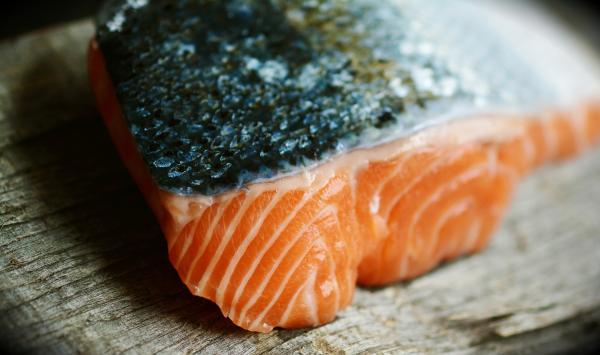In March, anti-GMO groups across the US launched a last-ditch effort to halt the commercialization of AquaBounty's transgenic AquAdvantage salmon. In years past, such campaigning convinced major food distributors and retailers to publicly distance themselves from the genetically engineered fish. But it appears that things are finally changing in the seafood industry. AquaBounty announced on May 10 that
purchase orders have been received for the planned harvest of 5 metric tons of its genetically engineered (GE) Atlantic salmon. The first harvest is scheduled to be conducted at the end of May from the Company’s Indiana farm. The Company will continue to ramp production to its full capacity throughout the year.
The news comes on the heels of a recent announcement that major US seafood wholesaler Samuels & Sons will carry AquaBounty's fish. The company cited its desire “to be at the front of the line” and offer its customers a more sustainable source of salmon.
A long time coming
AquaBounty’s engineered Atlantic salmon will be the first biotech animal sold in US restaurants and grocery stores. The fish contain a growth hormone gene from Chinook salmon and an on-off switch from the ocean pout. Unlike conventional salmon, AquaBounty's fish grow year-round, greatly reducing the amount of feed they consume and enabling important environmental benefits as a result. Only sterile females are produced for consumption in the company's tightly secured Indiana facility.
The biotech firm has jumped every conceivable hurdle on the way to commercializing its salmon, beginning with its initial application for FDA approval in 1995. In 2010, the food safety agency released a guidance analysis confirming that the GE salmon pose no threat to human health or the environment; the fish are equivalent to their conventional counterparts in every way, the agency said. But political interference from the Obama Administration and agitation by activist groups delayed FDA approval until 2015. Additional regulatory snafus, litigation, and the COVID-19 pandemic pushed commercialization into 2021. [1]
Anti-GMO movement loses momentum.
AquaBounty is the second biotech firm in recent years to face off with the anti-GMO industry and win. Impossible Foods earned FDA approval in 2018 for the key ingredient in its plant-based Impossible beef, soy leghemoglobin produced with the help of GE yeast, allowing dozens of fast-food restaurants to sell its vegan burger. The company then won agency approval again in 2019 and began offering its plant-based meat in US grocery stores. Impossible's success sparked little, if any, push back from consumers and even garnered the cautious endorsement of some previously vocal anti-GMO groups, notably the Union of Concerned Scientists.
Last Monday, the 9th Circuit Court ruled that the FDA properly reviewed Impossible's heme ingredient before giving its stamp of approval, slapping down a March 2020 lawsuit filed by the Center For Food Safety (CFS). CFS is the same activist group that sued to block the FDA's approval of AquAdvantage salmon.
While the anti-GMO movement wielded tremendous political influence only a few years ago, its status in mainstream American culture has declined rapidly. Activist groups can no longer organize massive protests, attract media attention or, as we've seen, block the approval of GE products the way they once could. These developments have led some commentators to speculate that anti-GMO activism is entering its last days as a viable political cause. Here's to hoping those predictions continue to prove true.
[1] This is a condensed summary of the timeline. Read this story for a more detailed account of the events surrounding regulatory approval of AquaBounty's salmon.




